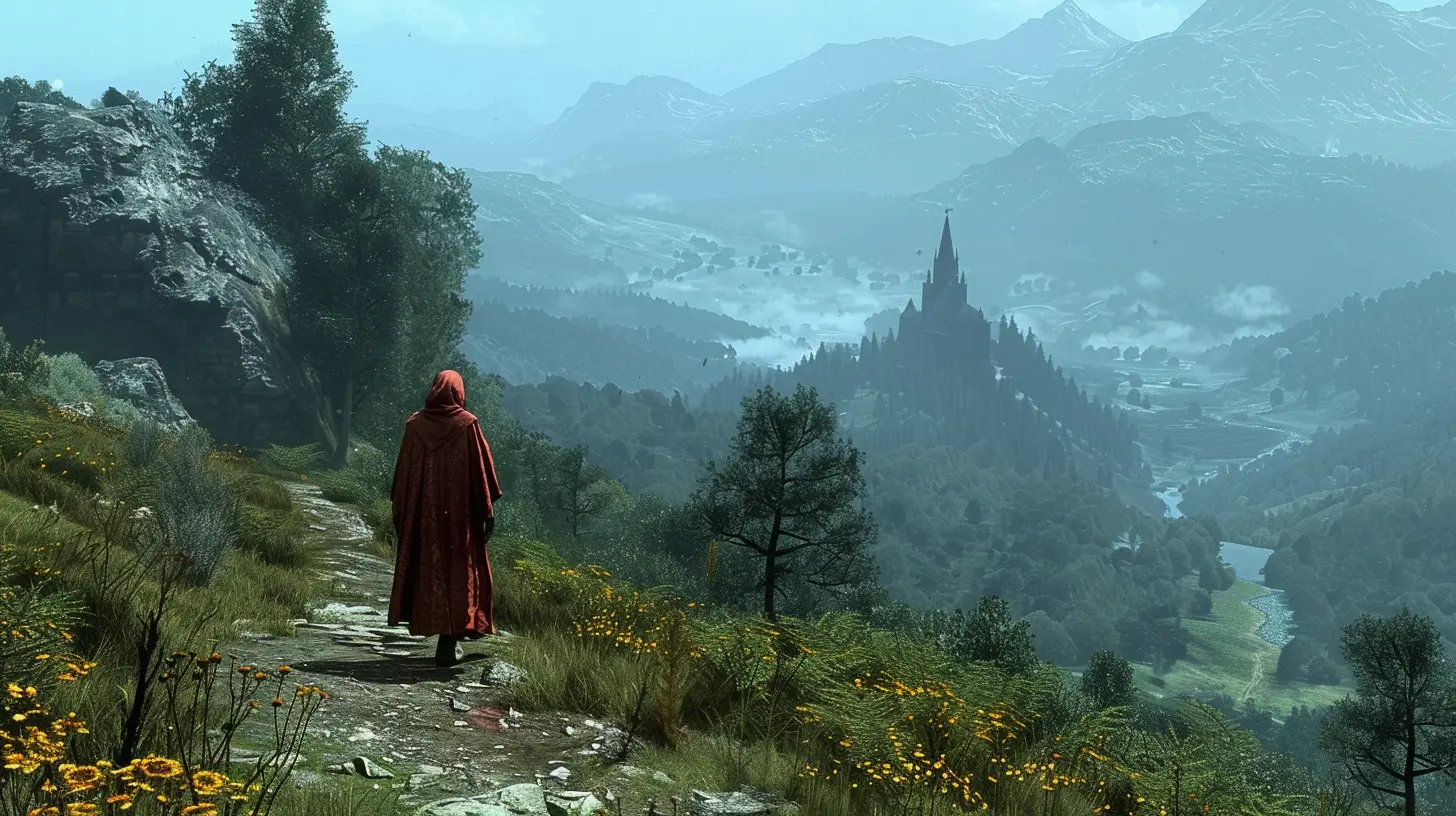The Role of Dialogue Choices in Shaping Adventure Game Plots
20 October 2025
Have you ever felt like the weight of an entire fictional world rested on your shoulders? Welcome to the world of adventure games, where your every decision—the seemingly mundane to the earth-shattering—can twist a story in unimaginable ways. And at the heart of these decisions? Dialogue choices. These options don’t just impact character interactions; they’re the invisible threads weaving your unique narrative. But how exactly do these choices shape adventure game plots? Let’s break it down.
Why Dialogue Choices Are the Heart of Adventure Games
Adventure games are all about storytelling. Sure, exploring eerie mansions or solving eccentric puzzles is thrilling, but none of it quite hits the same without a juicy plot to sink your teeth into. Dialogue choices are the unsung heroes of these plots, acting as the steering wheel for your journey. Go left, and you might uncover a hidden conspiracy. Turn right, and you’re spiraling into a love-hate rivalry with a quirky sidekick.Think about it: every time you pick a line of dialogue, you’re declaring, “This is who my character is!” It’s like role-playing with a megaphone. Beyond the thrills, dialogue choices also let us project a bit of ourselves into the game’s universe. Are you confrontational, diplomatic, or sarcastic? The game listens—and reacts accordingly.
Building Tension and Stakes Through Words
What makes a great adventure game stand out from the crowd? Stakes. High stakes. And dialogue choices have a knack for cranking up the tension to eleven. A single conversation can make you sweat bullets. Why? Because you know that one wrong word might ruin everything.Take Telltale Games’ “The Walking Dead”, for instance. Say the wrong thing to a fellow survivor, and suddenly, you’re left wondering if they’ll have your back when the zombies come knocking. It’s not just the words you choose, either—it’s how you say them. A snarky response might be funny in the moment, but will it alienate your group? Every choice is a gamble, and that uncertainty keeps us hooked.
The Illusion of Choice: A Clever Trick or Necessary Evil?
Let’s address the elephant in the room. Some critics argue that the dialogue choices in adventure games are often just an illusion. No matter what you say, the story plows forward on essentially the same tracks. And, to be fair, they have a point. Yet, is that really such a bad thing?Think of it this way. Your choices might not always overhaul the entire storyline, but they help you own it. Even small shifts—like a character liking you more or less—make the experience feel personalized. It’s like reading a choose-your-own-adventure novel. Sure, the author knows how it ends, but you still get to decide how you get there. And doesn't that make the journey more meaningful?
Multi-Branching Plots: When Choices Truly Matter
Of course, not all games stick to the illusion of choice. Some fully embrace the chaos of multi-branching plots, where dialogue decisions can lead to entirely different outcomes. These gems are where things get wild.Take “Detroit: Become Human”, for example. With dozens of endings and drastically different scenarios, your dialogue choices don’t just nudge the story—they bulldoze it in a new direction. One minute, you’re a pacifist android fighting for freedom, and the next, you’re leading a violent revolution. These kinds of systems thrive on ambiguity, forcing players to ponder every word like it’s a life-or-death situation. Because, well, it often is.
But here's the catch. Designing multi-branching plots isn’t easy—it’s a Herculean task for developers. Every decision creates a ripple effect, and managing those ripples without breaking the narrative? That’s straight-up wizardry.
Emotional Investment: The Secret Sauce of Dialogue
Let’s not sugarcoat it—dialogue choices wouldn’t matter if we didn’t care about the characters or world. The best adventure games tug at your heartstrings, making every reply feel deeply personal.Ever played “Life is Strange”? That series thrives on emotionally charged choices. You're not just deciding whether to crack a joke or stay silent; you're navigating friendships, loyalty, and sometimes gut-wrenching sacrifices. By the time the credits roll, you’re left grappling with how your words shaped the lives of everyone around you. It’s no longer about puzzles or collectibles—it’s about people.
Replayability: The Gift That Keeps on Giving
One of the biggest perks of having dialogue choices is replayability. Adventure games with solid branching dialogues practically beg you to start over just to see what happens when you make different choices. Ever wondered what would happen if you played the villain instead of the hero? Or maybe you want to know how a romance subplot unfolds if you flirt with a different character? Dialogue choices let you do just that.Games like “Mass Effect” have mastered this formula. Your choices ripple across multiple games, creating a fully immersive experience spanning hours of gameplay. Each replay feels fresh, like flipping the script on your favorite TV show.
The Psychology Behind Dialogue Choices
Here’s something you might not have thought about: why are we so drawn to dialogue choices in the first place? It’s not just about controlling the story—it’s about control itself. In real life, we don’t always get to see the consequences of our words so clearly. Adventure games, on the other hand, provide instant feedback, whether it’s a smile, a tear, or a dramatic betrayal.This feedback loop taps into something primal—our desire to connect. When a character responds to what you say, it feels like validation, like your voice matters. And isn’t that, at its core, what great storytelling is all about?
The Technological Leap: AI and Dialogue Systems
As gaming technology evolves, so do dialogue systems. We’re now seeing the rise of AI-driven conversations, where NPCs can respond to you dynamically rather than sticking to pre-scripted lines. Imagine a future where your choices aren’t locked to a handful of options. Instead, you could type or speak anything, and the game would respond intelligently.While we’re not quite there yet, games like “Disco Elysium” are taking bold steps toward more complex dialogue mechanics. In this game, your skills and personality traits influence what you can say—and even how persuasive you are. It’s a tantalizing glimpse of where the industry might be headed.
Final Thoughts: Words That Change Worlds
Dialogue choices are more than just a mechanic. They’re the beating heart of adventure games, transforming static narratives into living, breathing stories. Whether you’re playing the hero, the anti-hero, or just someone muddling through, your words leave a mark. They shape worlds, forge relationships, and sometimes, break hearts. And isn’t that what makes gaming such an unforgettable experience?It’s not just about what’s said—it’s about how it’s said, and the ripple effects that follow. So, next time you’re agonizing over a dialogue choice, savor the moment. After all, those words might change everything.
all images in this post were generated using AI tools
Category:
Adventure GamesAuthor:

Leif Coleman
Discussion
rate this article
1 comments
Zailyn McLoughlin
Great article! I love how dialogue choices enhance player immersion and impact storytelling in adventure games. It’d be interesting to explore specific examples from popular titles that showcase this dynamic effectively!
October 20, 2025 at 3:17 AM

Leif Coleman
Thank you! I appreciate your feedback. I'll definitely consider discussing specific examples from popular titles in future pieces!

